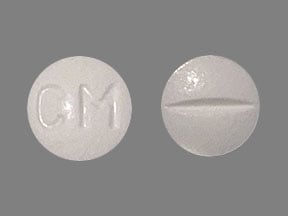My prescription
Edit
4MG, Carbinoxamine (60 Tablets)
Select pharmacy

CVS
$27.89
COUPON PRICE
Walgreens
$14.11
COUPON PRICE
Walmart
$23.08
COUPON PRICE
Albertsons
$34.42
COUPON PRICECarbinoxamine savings card
Show this card to your pharmacist
Walgreens
$14.11
BIN
ID
PCN
GRP
015995
LHKPY243634
GDC
DR33
Powered by
More prescriptions for skin allergy
More prescriptions for skin allergy
Price history for Ryvent (brand) & Carbinoxamine (generic)
60 Tablets, 4MG
Average retail price for Ryvent
Average retail price for Carbinoxamine
Average SaveHealth price for Carbinoxamine
Our price history data is based on aggregated prescription data collected from participating pharmacies in America. Our prescription data updates daily to reflect the latest price changes. If you notice a missing data point, it means there wasn't sufficient data available to generate a monetary value for that date.
We analyzed Carbinoxamine prices for (4MG, 60 Tablets) over the last 12 months. The average retail price was $50.82, while the average price using the SaveHealth discount card was $31.29. That's a savings of approximately 38.43% when using our Carbinoxamine coupon.
Compared to the generic version, Ryvent had an average price of $299.35 over the same time period. With the SaveHealth savings card, Carbinoxamine is 89.55% cheaper on average than Ryvent.
*Retail prices are based on pharmacy claims data, and may not be accurate when we don't have enough claims.
Carbinoxamine dosage forms
Dosage Quantity Price from Per unit 4MG 60 Tablets $23.08 $0.39 4MG 100 Tablets $42.28 $0.42 6MG 20 Tablets $82.40 $4.12 6MG 30 Tablets $114.45 $3.81 6MG 60 Tablets $210.60 $3.51 6MG 100 Tablets $338.80 $3.39
| Dosage | Quantity | Price from | Per unit |
|---|---|---|---|
| 4MG | 60 Tablets | $23.08 | $0.39 |
| 4MG | 100 Tablets | $42.28 | $0.42 |
| 6MG | 20 Tablets | $82.40 | $4.12 |
| 6MG | 30 Tablets | $114.45 | $3.81 |
| 6MG | 60 Tablets | $210.60 | $3.51 |
| 6MG | 100 Tablets | $338.80 | $3.39 |

